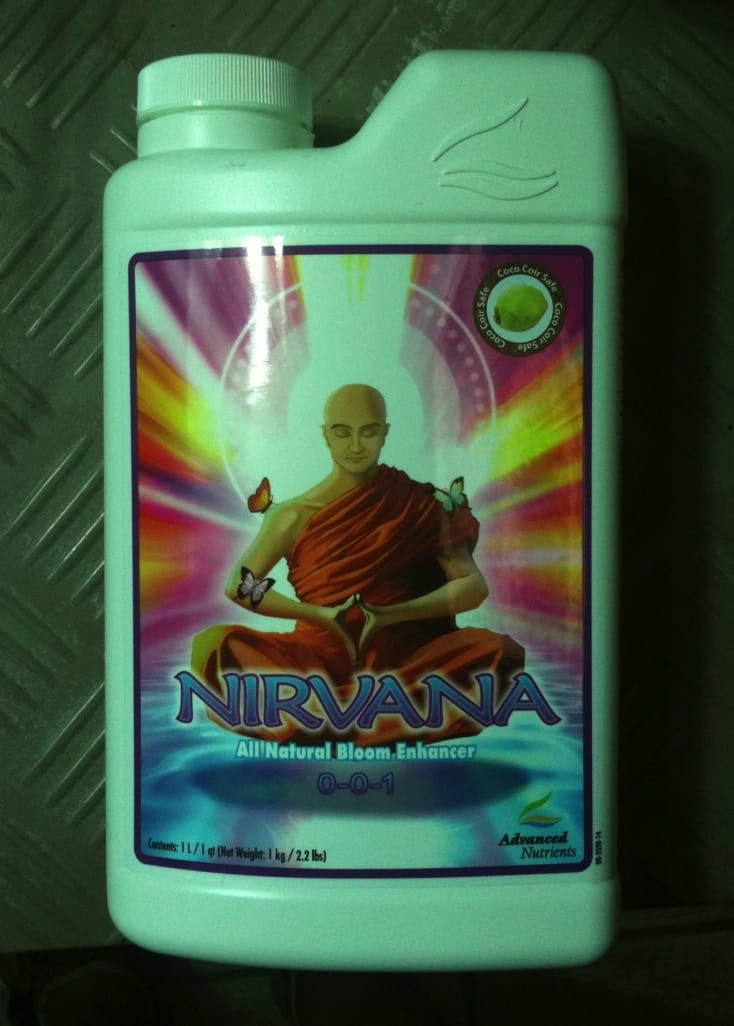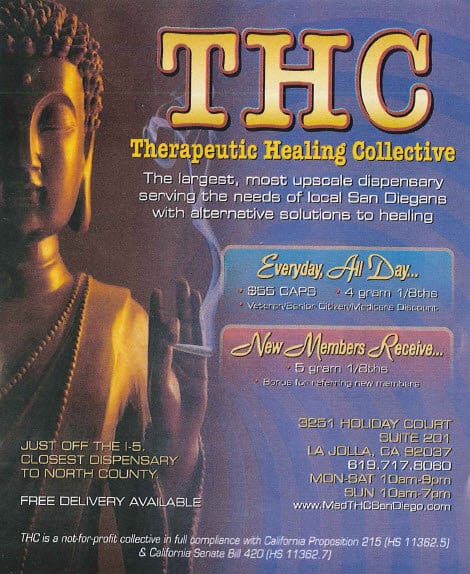Rod Meade Sperry explores recent pop culture associations between Buddhism and the use of marijuana.
As with Tiger Woods, there are some stories that, as someone who writes about Buddhism and pop-culture, I’ve just wanted to stay away from. Then comes the tipping point. Well, with his competitor’s already-infamous commercial, the Rand Paul/”Aqua-Buddha” tipping point has arrived.
After the jump: video of that commercial, and other recent evidence that when it comes to “casual use” of Buddhist ideas and imagery in marijuana culture, there’s plenty of residue left from the early days of Eastern religion’s entry into American counterculture.
By now, we all know the story about Rand Paul and his alleged former love of smoking out of a bong water pipe. This story was so “everywhere” when it first broke that it seemed to me more or less unnecessary to cover it. But the anti-Paul ad, which takes that infamous allegation out of context and seems to pit the Buddha against Christ, without a single mention of weed, is some pure, uncut bull.
Let’s not be naïve here: 60’s-era drug use was, for some Americans, part and parcel of the trip that led them to the study and practice of Buddhism and other Eastern religions. American Buddhists are still debating the exact meaning of the practice’s precept stressing abstinence from intoxicants — as with so many things, how this precept is actually observed will come down to the individual; some even maintain that intoxicants can be used mindfully.
Some, though, aren’t thinking about that at all; they just have a product to push, and they need a visual shorthand for “happy and mellow.” And so the Buddha, with his happy and mellow countenance, has — unknowingly — become the Face of Weed. This may seem like old news, but even longtime practitioners (among them, an established Buddhist teacher) have expressed surprise to me upon learning that the word “Buddha” is itself slang for marijuana.
But it very much is. Hence, say, BuddhaFest, a pro-weed gathering which took place last week:
And did you know that “Nirvana” has another meaning? An anonymous source shot and sent me the below photo from inside a fully-functioning marijuana growing operation.

There, it seems, “Nirvana” is a tool of the trade. And it’s a well-established product. Dig the cheezy copy from the product’s otherwise not-so-cheezy website: “In your relentless quest for larger buds that are worth more to you and your associates, you now have an all-organic formula called Nirvana.”
Or how about this magazine ad for a California pot dispensary, submitted to my Buddhism-and-pop-culture site The Worst Horse, by a reader?

(I particularly enjoyed one aspect of this ad’s lameness: Sure, it’s rather lame to show the Buddha smoking a joint, but to show a Buddha statue smoking a joint? Now, that’s lame. …I get the feeling that whoever designed this wasn’t quite thinking clearly. Hmmm.)
Really, one could go on and on and on. For now, though, I’d like to ask the question: Whatever you do or don’t think of marijuana and its use, do you think it’s okay to, um, bogart Buddhist imagery — and the very epithet of the person for whom Buddhism is named — like this? It harmless? Or no?

I see little difference in the exploitation of Buddhist references in drug culture than I do in the ads for all things Buddha and Buddhist in Western Buddhist periodicals, not to mention the pricey Sangha retreats and seminars.
The difference lies in the amount of self-righteousness involved.
I have grown really tired of the endless use of Buddhist images and terms being used to promote "hip" for profit enterprises. That being said, I found it quite ironic that NFL player Kenny Britt was recently charged with assault for participating in a fight at a nightclub called – you guessed it – the Karma Lounge.
Gabriel Garcia Marquez once said that people who think that he's on drugs when he's writing know nothing about drugs, and know nothing about writing. The same could be said for those who conflate anything Buddhism with a pot high — they nothing of Buddhism, and have misinterpreted their drug experience. When it comes to pot and Buddhism, I've done a lot of the latter and enough of the former to know that they are as different (to steal a line from Mark Twain) as lightening and a lightening bug. At a meditation seminar I attended, the teacher, Reggie Ray, told a guy who claimed he was experiencing "vertigo" during sitting: "Do you smoke pot?" Startled, the guy nodded. Reggie Ray said, "Don't. Meditation grounds you
https://www.icmag.com/ic/showthread.php?t=3819&am…
Here is a group of SGI [Soka Gakkai International] users and cultivators that is tacitly approved by their Buddhist organization.
If I were any smarter I could articulate why I don't approve of marijuana users using the buddha's image, but I'm not. I simply don't approve.
If a thousand people do a wrong thing ~ it's still a wrong thing period; whether it be Buddha, Jesus, God, Allah, Muhammad . . .
We live in a commercial world where any societal trend is used to 'hook' potential consumers. Is it not all illusion? Whether selling pot or cellphones, books or booze, we have to see all advertisements as distractions from developing a fulfilling inner life. My method is to simply treat them as passing thoughts – momentarily interesting but bereft of meaning. There's so much more to life than entrepreneur-fueled salesmanship! Really!
Liberation & love to all…
well i was part of the pot culture for a while. I think the usage of 'buddha' as reference to marijuana – came originally from the 90s, when smoking 'bud' ( as in green-bud, the flower of cannabis) slowly morphed into smoking 'buddha' – but the slang made a simple sense. smoking marijuana USUALLY makes a person relaxed and peaceful – these are things everyone but a Christian fundamentalist associates with THE Buddha. frankly i think that marijuana use has a lot to do with the IDEA of enlightenment- a basic revelation about the state of the world, the mind, etc, but not necessarily the actual PRACTICE of, or real understanding, of it. Because cannabis use was practiced by so many who LATER came to Buddhism or Yoga practice, one could easily argue that the insights GAINED from cannabis use were positively- enlightening.
The Buddha's Way saved me a long time ago. Therefore I find it disgusting and shameful to see His imagery used to promote breaking the Fifth Precept.
Technically, drinking tea or coffee is also breaking the fifth precept. However many practitioners are not monks, but house-holders. In this sense they are more likely to follow a path of moderation, rather than one of pure renunciation. So therefore they might enjoy a glass of wine or beer every now and then. In the same way as alcohol, marijuana may be considered an occasional pleasure for some people.
When people talk about "promote breaking the fifth precept" as being "disgusting and shameful" it sounds much more like a fundamentalist christian message than a buddhist one. There is a deep human love for systems and rules and highly idealized ethics, and often it seems that this love trumps any other possibility of mind. It may not even be particularly "buddhist" to follow the precepts in such a rigid way – for is it just purely a coincidence that when the buddha decided to stop his austerities, his process of enlightenment began under the bodhi tree? Is it not called the "middle way"?
All too often the religious methodology of humanity tends to corrupt the divine message of the illuminated people who bring it to us. It is not about building a wall of piety to block and repel or destroy all the "evil" influences. It is not about elevating the love of the self-image beyond that of life itself. It is not about blindly following a system of pre-established ideas with lustful zeal.
Christianity, and Jesus get dissed the most. Mohammad the least. Asian deities receive dumb "Chinese eyes" disses complete with phony Asian accents.